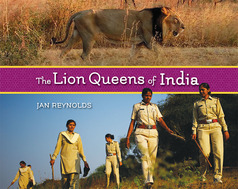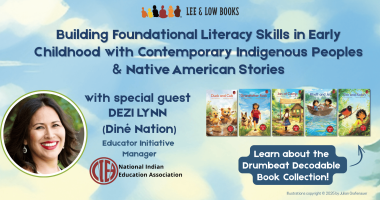JAN REYNOLDS is an award-winning author and photographer  whose work has appeared in numerous publications, including National Geographic, The New York Times, and Outside magazine. Her nonfiction books for young readers include Celebrate! Connections Among Cultures; Cycle of Rice, Cycle of Life; and Only the Mountains Do Not Move. She also holds the world record for women’s high altitude skiing, was part of the first expedition to circumnavigate Mount Everest, and performed a solo crossing of the Himalayas.
whose work has appeared in numerous publications, including National Geographic, The New York Times, and Outside magazine. Her nonfiction books for young readers include Celebrate! Connections Among Cultures; Cycle of Rice, Cycle of Life; and Only the Mountains Do Not Move. She also holds the world record for women’s high altitude skiing, was part of the first expedition to circumnavigate Mount Everest, and performed a solo crossing of the Himalayas.
Jan’s newest picture book, The Lion Queens of India, follows a group of female park rangers in Gir, India who are tasked with protecting the endangered Asiatic lion. In this interview, we talk with Jan about writing the book and her life traveling the globe in search of stories and connections.
You took an unusual approach with this book and included students from around the world in the book’s research process. Can you talk about why you chose to do that, and what it was like?
I like to feel children have “ownership” in the books I create. And we have such incredible connectivity these days with all the social media. So I just put it together and sent out notice over my email lists and on my social media for teachers to tap in and talk to me on Twitter, Facebook, and Instagram while I was working in Gir with the Lion Queens.
It was super, I’d get tweets from kindergarteners in Vermont, middle  schoolers in Colorado and so many more telling me what they wanted to know, and what they wanted me to photograph. They were also waiting for my first sighting of a lion… that took time, but students came to school each day excited to see what had happened. I was several time zones ahead of them, so my day ended and I was often sleeping when they were coming to school. I chose to connect with my reading audience while making the book, to do it together, and to know just what was on their minds!
schoolers in Colorado and so many more telling me what they wanted to know, and what they wanted me to photograph. They were also waiting for my first sighting of a lion… that took time, but students came to school each day excited to see what had happened. I was several time zones ahead of them, so my day ended and I was often sleeping when they were coming to school. I chose to connect with my reading audience while making the book, to do it together, and to know just what was on their minds!
I had lots of international schools following me too, from Singapore, Ethiopia, Switzerland, and so on. I would check for messages every night when I came out of the forest, and it felt so good to have friends who had sent me a note on their own or through their teacher. I work alone and so all these kids kept me company! They would send me maps they made and lovely notes…. U.S. students aren’t very good with geography, so it warmed my heart to see students making maps of India and locating Gir.
Can you share a little about what it’s like to be a photographer around the world? How did you build a relationship with the people featured in The Lion Queens of India?
I feel deep in my bones we are one human family. I see us as a family. I have six siblings in my own family, and yes, we have our differences, but we are so much alike in many ways. I feel it is the same around the world. We are so alike, and when I am waaaaay far out in the wilds, it is the same life every time, we need shelter to be warm, food and water, and we need each other to survive. We love all our families and we work together—as humans, we are social. So behind every photograph is me having had tea, and sat with these people, communicated and laughed without common language, and shared food and water, and gifts I could bring; a little gold and silver jewelry, scarves of silk and wool. I hold the babies, and work with the men and women, and play with the children… it was the same with the Lion Queens and the people in the small town of Gir.
I lived in Gir town, and walked the Main Street, drank tea, noticed I was the subject of excitement and gossip. Then after I met a few people, and spent some time, I took out my cameras and carefully began to shoot. I sat with Rashila in her home a couple times, and drank tea before we ever began any work.
What is one tip you would share about how to be respectful when visiting someone else’s community?
When visiting someone else’s culture, it is important to let go of the way you think things should be. Just because something is different doesn’t mean it is bad or wrong. That’s the adventure of it all, to approach with an open mind, and learn something new about the broad scope of what it means to be human. This develops compassion. You learn to feel real emotion for others. And let go of judgement. At this point, you begin to really experience a new way to see our planet Earth, and your life and role upon it. There are MANY ways to live while we are alive on earth. Our human family is creative with a large capacity for love and social design. We are social creatures with the ability to organize ourselves in so many varied ways. As long as the group, or human culture, is content and thriving, if kindness and fairness is paramount, it works!
I sometimes see us today in the modern world, as a system, as opposed to a culture, and I worry that our systems seem to speed up time, and bleed out creativity in life. We may do well to get less done, and feel and experience more. If we ALL slowed down, it would be no problem! My time traveling has taught me that the warmest emotions and feelings unfold with a little time. It’s wonderful to take a breath and experience true joy at a sunrise, or a fish just caught, or a delicious meal laid out.
What do you hope people here in the US will learn from the Lion Queens and their success?
I wish for readers to see we need to care for Earth as people have cared for the land in the Gir area, so that there is balance again between all creatures, including man, on this Earth. I want every reader to understand that no matter what gender determination works for you, you are as much as you can dream. Your imagination is your only limitation.
I also hope readers are inspired by a successful effort to bring back an endangered species. There were only about a dozen Asiatic lions left and now there are more than 600 lions! Think about it: this area in Gir saved a gorgeous species of lion. How cool is that! If they gave up, think of what the whole world would have lost. We should all admire and appreciate the Lion Queens for their brave and courageous work, so we all can still see these gorgeous lions. And I hope young readers take away the lesson that with good intention and hard work, you just might defy the odds, and save a whole species.
What are 3 essentials that you take with you on every excursion?
All humans need fresh water, so I take a filter and iodine tablets to be able to drink, and stay healthy. Secondly, some food, often dehydrated, so I will be fed if all else fails, and then I have a bivouac sack and sleeping bag… so if I have water, food, and I’m dry and warm, well, that’s all I need to survive, right?








